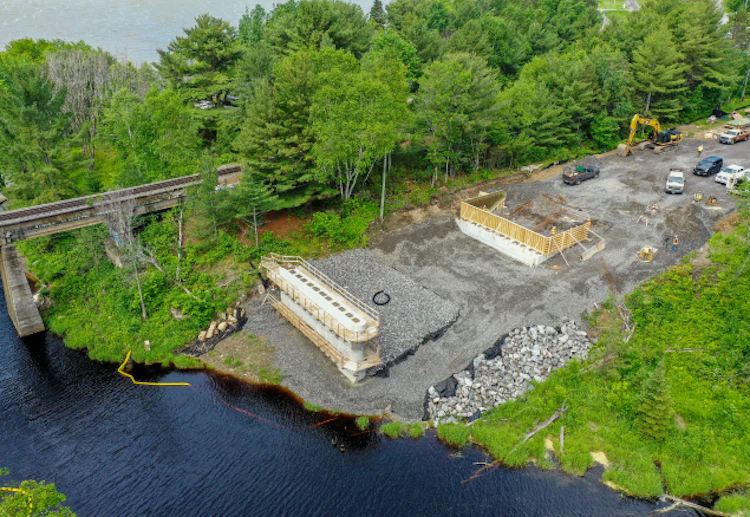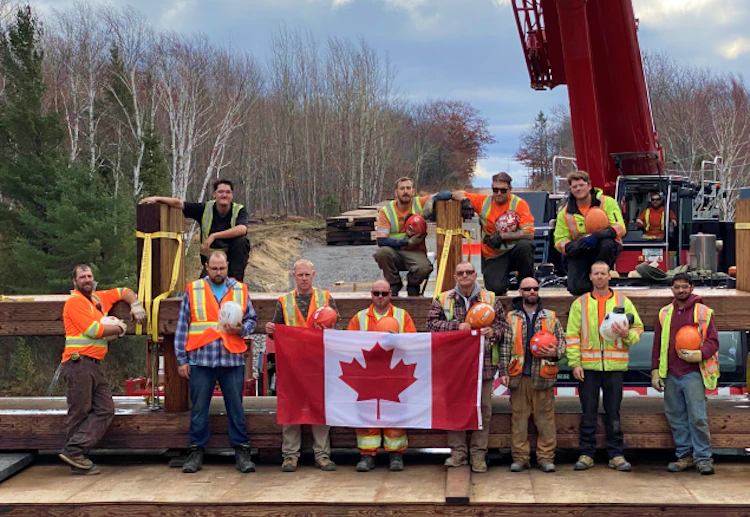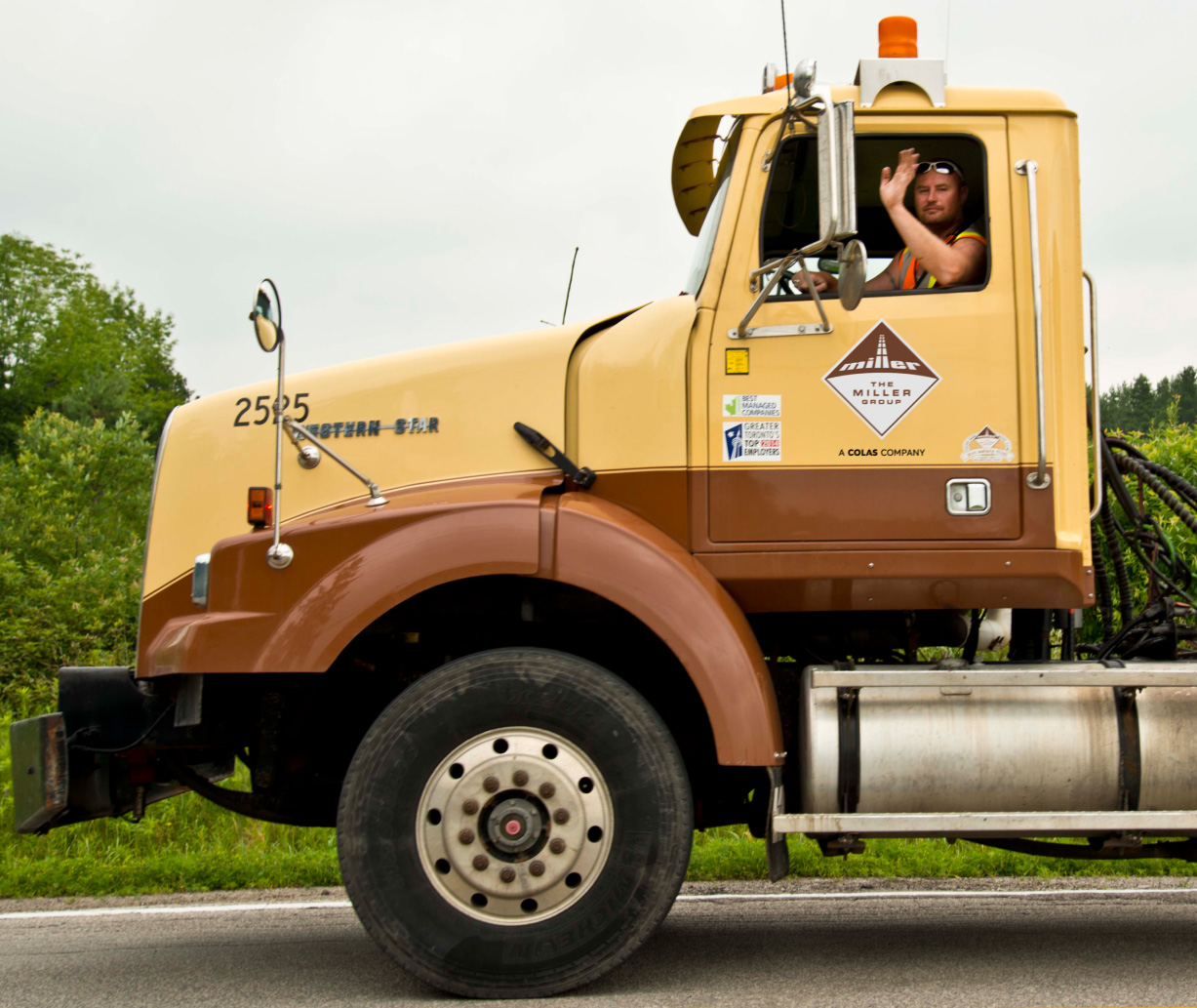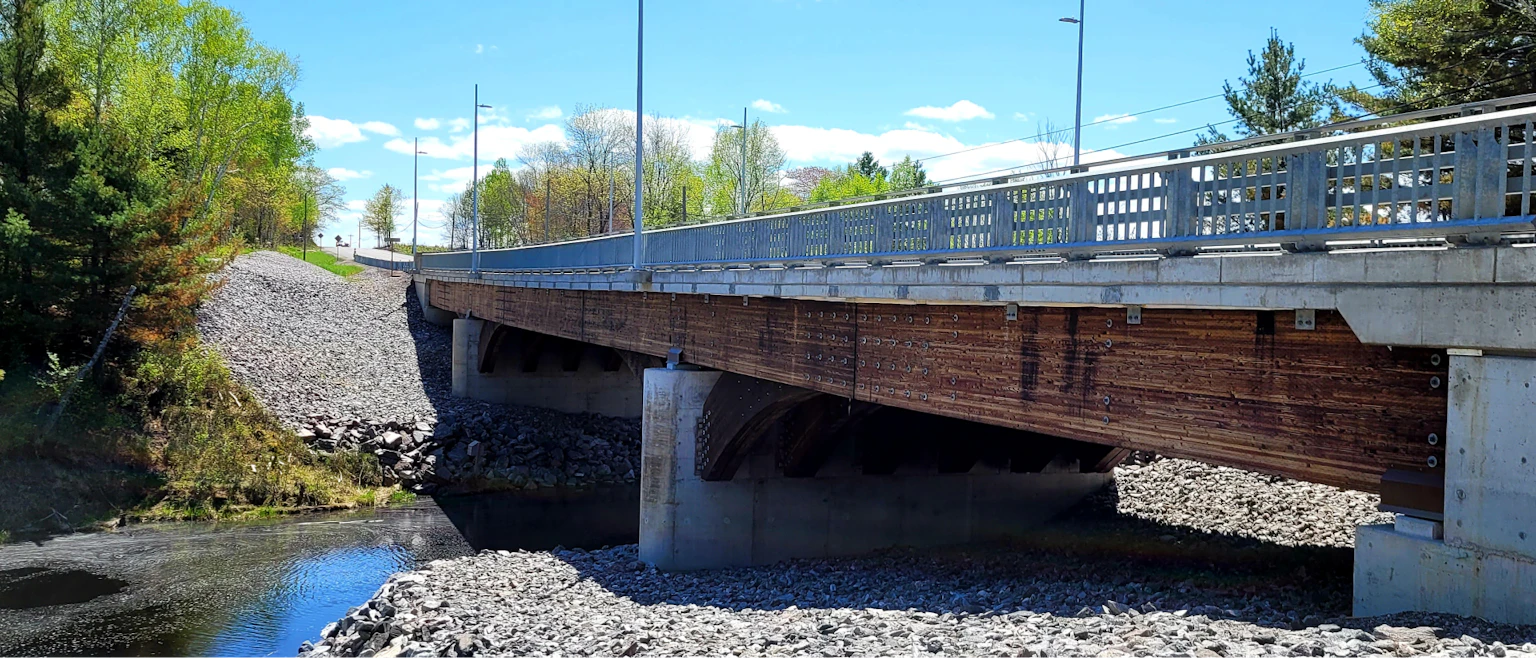Summary
Client
Ministry of Transportation
Sector
Civil
Market
Bridge Construction/ Transportation
Year Completed
2021
Cost
$17.1 million
Originally constructed in 1937, the Duchesnay Creek Bridge connects the City of North Bay and the Nipissing First Nation. In 2021, it was replaced with a one-of-a-kind structure, built using laminated, high-quality Douglas Fir girders.
Built through a limited partnership of Nipissing First Nation and Miller Paving, the $17 million project provided economic and training opportunities for the community, embraced the enhanced use of timber, and respected the bridge’s historical origins.


Project highlights
- The work was completed in 2021 and spanned 23 months.
- The project involved both pre-cast (fabricated in the Miller Northern Precast Facility) as well as cast-in-place elements, and close to 30,000 mt of aggregates.
- The 93-metre-long (305-foot) and 12-metre-wide (39-foot) bridge consists of three spans and 12, 1,710-mm deep and 315-mm wide glue-laminated girders. Other than the girders and arches, the rest of the bridge was built with reinforced concrete — with some steel piling for the piers.
- The project also included the pavement of the one kilometre of 17B owned by the province and the removal of an abandoned CPR railway bridge.
This high-visibility project also helped promote the use of mass timber in highway bridges across Canada. By building with wood, this project will result in a total carbon benefit of 991 metric tonnes of CO2, which is equivalent to taking over 190 cars off the road for a full year.
Miller’s First Nation Partnerships
The Miller Group has a long history of working in collaboration with First Nation communities, fostering positive relationships in the communities where they live, in particular on ancestral territories. We care about and are committed to reconciliation with our First Nation communities through respectful partnership and meaningful collaboration.


